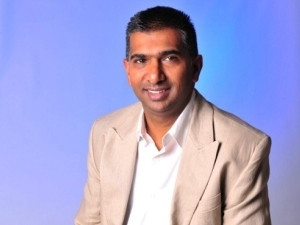
The fourth industrial revolution is revolutionising the way in which businesses and consumers engage, collaborate and consume products and/or services.
So said Kevin Govender, independent advisor at Ideation Advisory, speaking yesterday at the ITWeb Data Centre Summit 2017. Discussing IOT trends in consumer behaviour, Govender explained the key link between the physical and digital applications enabled by the fourth industrial revolution is the Internet of things (IOT).
"IOT is business-driven and will help organisations design new business models, create business value and capitalise on new business opportunities. Customer expectations are being
reclassified into customer experience, which is key to the success of organisations. The impact of the IOT on organisations and consumers is profound: it helps create business value and engages consumers," he explained.
IOT he continued, provides data and information which can be used to enhance the consumer customer experience, provide insight into consumer behaviour, which would result in a better understanding of the consumers and help enhance interaction and engagement with consumers.
"The important thing is how you manage those IOT devices. And how do you use these devices to improve services and operations, optimise assets, generate additional revenue, provide security, while increasing customer engagement and improving the overall wellbeing of citizens."
Gartner predicts that in 2017 8.4 billion connected "things" will be in use, up 31% from 2016.
"The consumer segment is the largest user of connected things with 5.2 billion units in 2017, which represents 63% of the overall number of applications in use .Businesses are on pace to employ 3.1 billion connected things in 2017," says Peter Middleton, research director at Gartner. "Aside from automotive systems, the applications that will be most in use by consumers will be smart TVs and digital set-top boxes, while smart electric meters and commercial security cameras will be most in use by businesses."
He made reference to how data is consumed in the smart world.
"In the past, the most important resource used to be oil, but now it's data .The key connection between IOT and data is that the data is now used to generate information in order to be used to make more informed decisions. These decisions allow organisations to generate different business models, provide new services and generate additional profit.
"In water pollution a lot of IOT devices are used to measure water quality, in power monitoring devices, IOT enables us to understand and monitor energy usage through the smart grid. The logistics sector is also using IOT devices to monitor movement of transported products, smart bins are used in smart waste management, so that the bins are only emptied when they become full."
IOT helps create business value and engages consumers. Connecting with consumers is a business imperative and the change in consumer behaviour poses a challenge that businesses need to overcome in order to grow and transform, he concluded.
Share